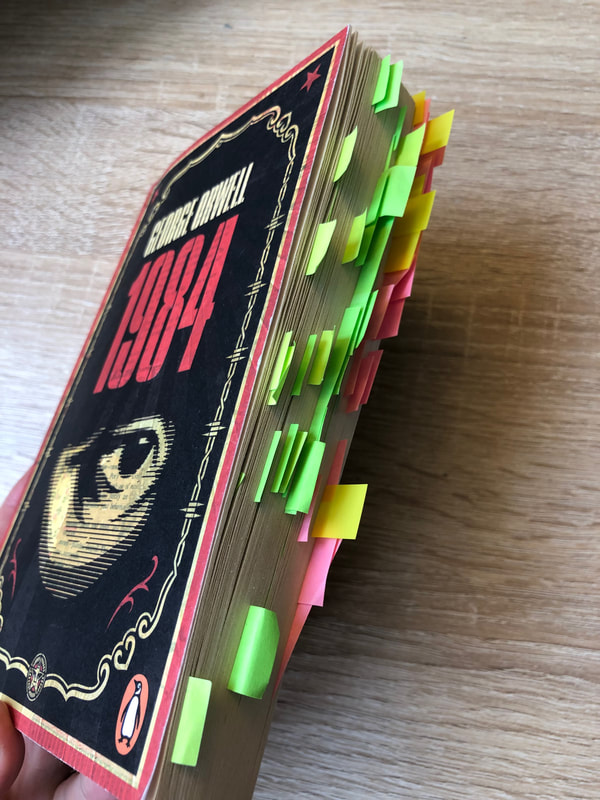The editor who reads too much |
|
How has my perception of 1984 changed in the 22 years since I last read it? The impression I have from the first time I read this book—when I was a teenager—is one I still carry with me today. You only get the chance to read a book for the first time once. And that first impression matters.
In 1999, my teenage self was blown away by the world Winston Smith lived in, and I was barely able to grasp all the hidden meanings and subterfuge and complexity of what Orwell was trying to convey. In 2021, my understanding of history, literature, and the world, in addition to my life experiences, allowed me to reread the book through a different lens. I did not experience the same mind-blowing dystopian trip I had previously. Orwell’s craft and talent are obvious throughout the book, but the impression I walked away with is that many authors today try to imitate his style (either consciously or subconsciously), and the style doesn’t work with modern audiences. I know Nineteen Eighty-Four is literary fiction, but for the purpose of a literary theory course, I used it as a sample for a dystopian sample edit. So in 2021 I was reading the book with a far more critical eye than I usually read with. My goal was to find flaws and pick it apart. And I discovered that if Nineteen Eighty-Four were submitted to the dystopian market today, it would be rejected. You might think me snooty or above literary fiction: I’m not. (I was an English major; I live for lit fiction!) Yet Orwell’s writing is full of examples of craft of writing issues that that modern authors frequently struggle with: worldbuilding, info-dumping, pacing, dialogue, and character development. Nineteen Eighty-Four will always be the dystopian novel, accompanied by the other greats: Brave New World, Fahrenheit 451 and Slaughterhouse-Five. But it doesn’t mean we shouldn’t view it through a modern lens to figure out what works for modern audiences versus what worked for audiences in 1949. Vastly different readership! It’s also a key point to keep in mind: the first impression readers have of your novel will be the one that sticks with them: so let’s make it a good one! Comments are closed.
|
Categories
All
Archives
July 2024
�
Posts on editing
Posts on books
Posts on publishing
Everything Else!
|


